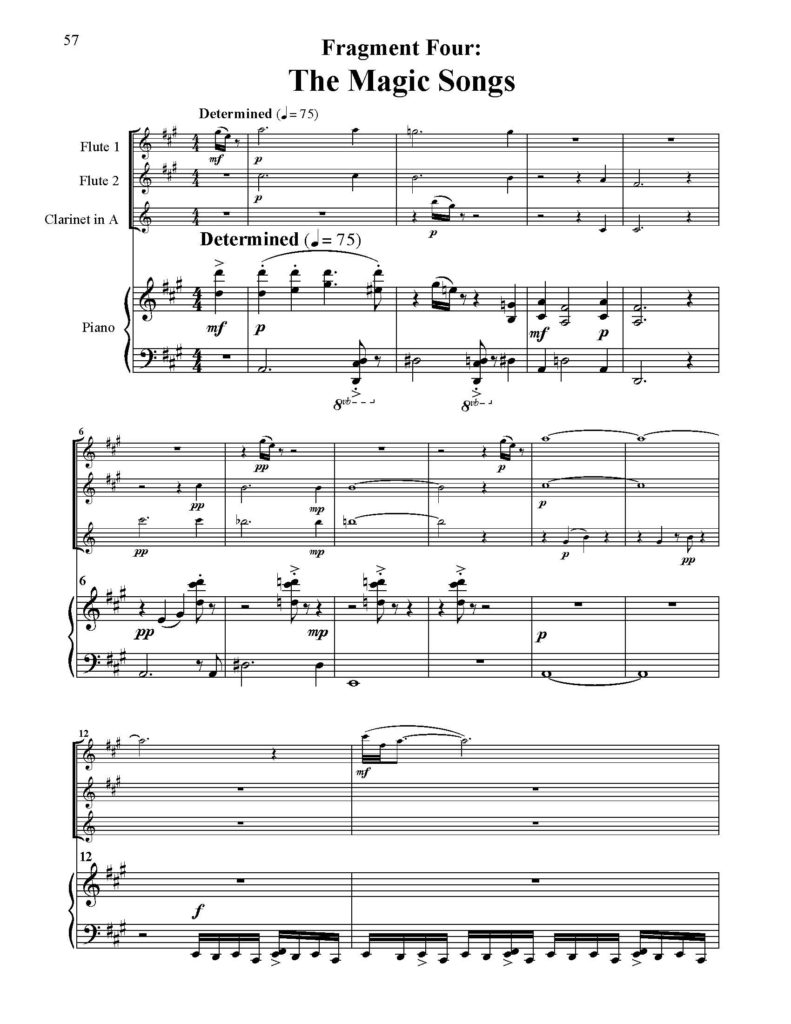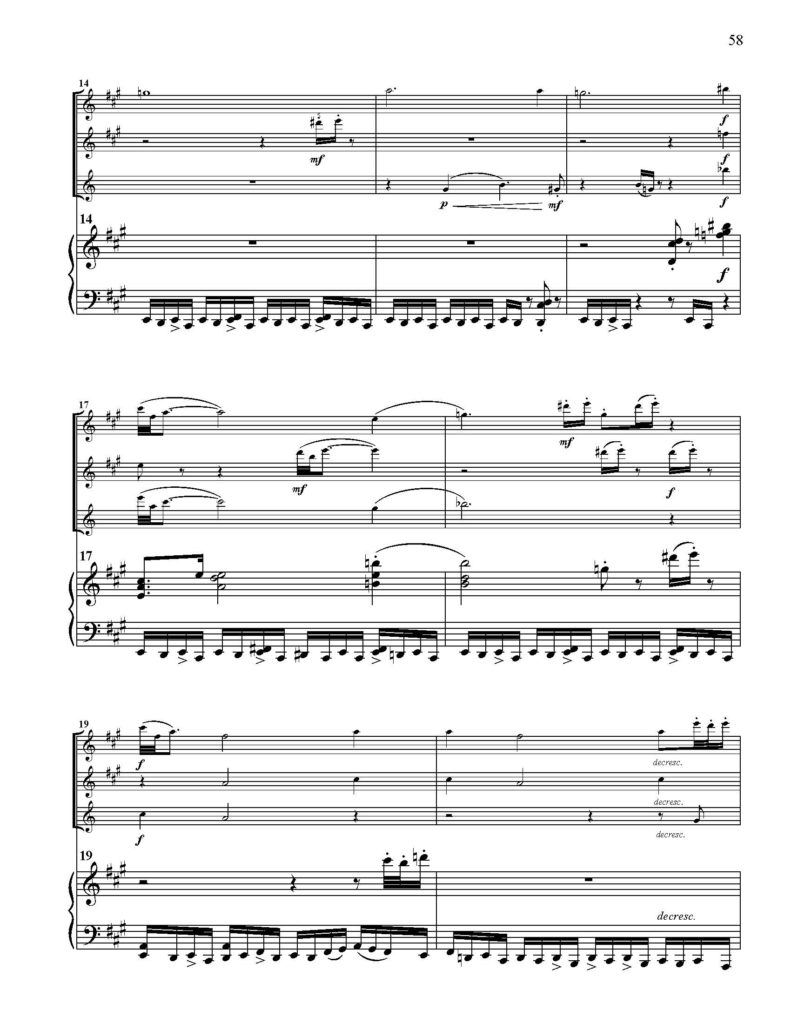This next fragment of Quiquern is called “The Magic Songs”. Famished and delirious, Young Kotuko and the girl set out alone into the blizzard to find food for the starving village. As the dark and the cold and hunger devour them, the two children rave and hallucinate, unhinging themselves from the realm of men and into the realm of gods. As they descend, they sing songs of magic, songs buried deep in their memories, in their blood. Their voices rise and fall with the frozen wind.
And through this silence and through this waste, where the sudden lights flapped and went out again, the sleigh and the two that pulled it crawled like things in a nightmare — a nightmare of the end of the world at the end of the world.
The girl was always very silent, but Kotuko muttered to himself and broke out into songs he had learned in the Singing–House — summer songs, and reindeer and salmon songs — all horribly out of place at that season. He would declare that he heard the tornaq growling to him, and would run wildly up a hummock, tossing his arms and speaking in loud, threatening tones. To tell the truth, Kotuko was very nearly crazy for the time being; but the girl was sure that he was being guided by his guardian spirit, and that everything would come right. She was not surprised, therefore, when at the end of the fourth march Kotuko, whose eyes were burning like fire-balls in his head, told her that his tornaq was following them across the snow in the shape of a two-headed dog. The girl looked where Kotuko pointed, and something seemed to slip into a ravine. It was certainly not human, but everybody knew that the tornait preferred to appear in the shape of bear and seal, and such like.
It might have been the Ten-legged White Spirit–Bear himself, or it might have been anything, for Kotuko and the girl were so starved that their eyes were untrustworthy. They had trapped nothing, and seen no trace of game since they had left the village; their food would not hold out for another week, and there was a gale coming. A Polar storm can blow for ten days without a break, and all that while it is certain death to be abroad. Kotuko laid up a snow-house large enough to take in the hand-sleigh (never be separated from your meat), and while he was shaping the last irregular block of ice that makes the key-stone of the roof, he saw a Thing looking at him from a little cliff of ice half a mile away. The air was hazy, and the Thing seemed to be forty feet long and ten feet high, with twenty feet of tail and a shape that quivered all along the outlines. The girl saw it too, but instead of crying aloud with terror, said quietly, “That is Quiquern. What comes after?”
This is the final music of Quiquern. At the end of the story, the dogs lead the boy and girl to a crack in the ice where seals are coming up for air. They kill as many seals as they can carry, and hurry them back to the village. The people rejoice as famine is averted just in time. They sing and light candles made of seal fat.
Kotuko and the girl took hold of hands and smiled,
for the clear, full roar of the surge among the ice
reminded them of salmon and reindeer time
and the smell of blossoming ground-willows.
Even as they looked, the sea began to skim over
between the floating cakes of ice,
so intense was the cold;
but on the horizon there was a vast red glare,
and that was the light of the sunken sun.
It was more like hearing him yawn
in his sleep than seeing him rise,
and the glare lasted for only a few minutes,
but it marked the turn of the year.
Nothing, they felt, could alter that.
This ending seems to think of itself as a happy ending. But that’s not really what it is. It’s not a sad ending either. The village is well-fed for today, and their way of life continues the way it has for a thousand years. There is something truly magical about that. But what happened this winter will happen again. The village’s survival is always balanced precariously upon a precipice. As the camera pans out, we are reminded that all around the happy village is an endless frozen desert, cruel and dark, and so very cold. A single warm ember in a vast field of ice.
Perhaps that is a metaphor for all of humanity. Everything that we do and everything we care about and everything we’ve ever created and everything we remember and cherish is but a tiny ember in the blackness of space. How hard we all try to keep it lit; how vast and cold and uncaring is the universe.
Does that mean we shouldn’t live our lives to the fullest? Of course not! It’s even more reason to appreciate life. The feel of a baby’s skin on one’s cheek, the laughter of a life-long friend, the warm embrace of a lover, the taste of well-prepared food, the memories of good times, the hopes and dreams and aspirations we all nurture in our hearts; these things keep us warm and snug through the winters of life, even if deep down we know that the dark need not attack us directly to see us finally defeated, it need only wait.


